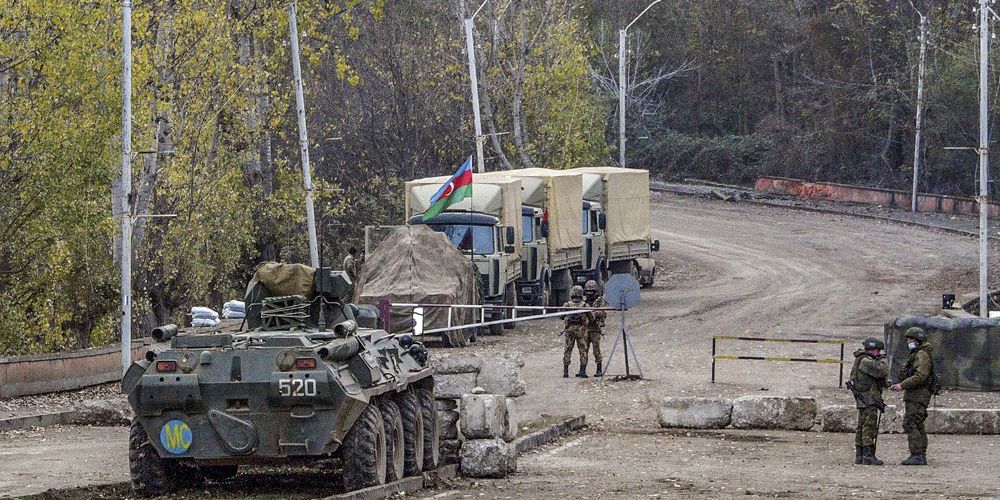Search

Projects
International Monitoring Group

The tri-lateral statement of Vladimir Putin, the President of Russia, Ilham Aliyev, the President of Azerbaijan, and Nikol Pashinyan, the Prime Minister of Armenia, dated 10 November 2020, stopped the war between Azerbaijan and Armenia. The opportunity for establishing the lasting and solid peace in the South Caucasus region was open. Karabakh conflict became a factor of the past. Azerbaijan reinstated its territorial integrity. In the course of the follow-up meetings and negotiations between the leaders of the three countries, that took place in Moscow on 11 January 2021 and in Sochi 26 November 2021 a series of important aspect were specified and detailed for the future normalization of Azerbaijan-Armenia relations under the facilitation of the Russian Federation.
According to President Ilham Aliyev, Azerbaijan plans to turn over the page of the long-lasting adversarial relationship with Armenia and start the stage of normal interaction. In his turn, Prime Minister Nikol Pashinyan confirmed the commitment to open the era of peaceful development for Armenia and for the entire region.
Baku offered Yerevan to sign the peace treaty between the two countries. The basic principles of normalizing the relations between Azerbaijan and Armenia include five points:
1. Mutual recognition of sovereignty, territorial integrity, inviolability of international borders and political independence of both countries;
2. Mutual confirmation of lack of territorial claims and undertaking judicial commitment of not instituting such claims in future;
3. Refraining from the threats to each other’s safety in international relations, from intimidation and violence against political independence and territorial integrity, as well as from other circumstances not complying with the Charter of the United Nations;
4. Delimitation and demarcation of territorial borders, establishing diplomatic relations;
5. Opening of transport and communications, building other relevant communications and cooperation in other spheres of mutual interest.
Meanwhile, the Armenian illegal military groups remaining in the South Caucasus continue to be one of the key destabilizing factors for peace and security in Karabakh region of Azerbaijan.
Delimitation and demarcation of territorial borders between Armenia and Azerbaijan remains one of the crucial issues requiring immediate practical solution along with unlocking all economic and transportation connections in the region including the re-launch of Zangezur transport corridor, provision of the maps of the minefields in the liberated Azerbaijanian territories abandoned by Armenian troops after the long-lasting occupation.
Reconciliation in Karabakh is a very complicated process. Acts of provocation and shelling initiated by Armenian party, sedition on behalf of a number of external players, unlawful invasions of different Western envoys and Armenian lobbyists into the territory controlled by separatists makes peace here very fragile.
Striving to make its contribution into establishing long-term peace in the South Caucasus, to support and strengthen security and stability in the region, which is fully in line with the interests of the Russian Federation in the current geopolitical environment, to promote confidence-building measures and to assure favorable environment for the Russian peacekeeping forces in their responsibility zone in Karabakh territory, the Caspian Institute for Strategic Studies established the International Monitoring Group (IMG) with the objective of comprehensive analysis of the unfolding situation and forecasting potential scenarios, for recording different types of violations and maintaining the relevant database. Experts from Russia and CIS countries are engaged in the IMG activities.
The International Monitoring Group publishes its reports on a quarterly basis.

